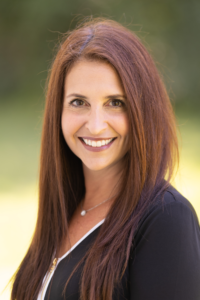Birth
There is no occasion more filled with hope for the future than the arrival of a new baby boy or girl. Congregation Sinai has many options to help you welcome your child into the covenant and give them their Hebrew names. These names are chosen by the parents and are often given as a way to honor the memory of beloved relatives who have passed away.
The B’rit milah (covenant of circumcision) for a baby boy is typically done on the eighth day after birth. The boy is given his Hebrew name at the same time. The person who performs the circumcision is called a mohel.
Baby namings for girls can occur at any time, although they are usually done in the first few weeks of the baby's life, often during Shabbat services. Families who do not participate in a B'rit milah ceremony may also decided to have a baby naming ceremony for their sons.
B'nei Mitzvah
Bar Mitzvah (Son of the Commandments)
Bat Mitzvah (Daughter of the Commandments)
Bat and Bar Mitzvah students at Sinai begin their studies a full year before their thirteenth birthday. During the sixth grade year, Rabbi Cohen and Cantor Newman conduct three family education sessions, focusing on the meaning of becoming a bar/bat mitzvah, the mitzvah of Tzedakah in the life a Jewish adult, and the family's spiritual journey as they approach the time of bar/bat Mitzvah. A year out, students meet with Rabbi Cohen for three individual sessions to learn about their Torah portions and pick the section to read. They meet with the cantor and a bar/bat mitzvah tutor on a weekly basis. Two months before, students begin four sessions during which they write a D'var Torah, or speech. Throughout, families are in touch with our Director of Engagement who gently guides them through the myriad logistical details of celebrating a bar/bat mitzvah at Sinai. All in all, it's an intense experience for the family, the student and for the cantor and rabbi. And it can be for you, should you ever want to come. The Shabbat services are not private, but for the community. Mazal Tov!
Marriage
Marriage is a sacred bond that ties two souls together with each other and with a spark of the Divine. At Sinai, we take the opportunity to get to know the couples we marry so that the relationship is a lifelong one. In addition, getting to know each other enables us to best represent the couple to their community at the wedding.
At Sinai, we know that Jewish families today come in many different forms. Rabbi Cohen does officiate at Jewish wedding ceremonies for interfaith couples in our congregational family who are committed to building a Jewish home. He also welcomes same-gender couples into the covenant of marriage. Contact Rabbi for more information.
We conduct wedding ceremonies in the main sanctuary, in the more intimate worship and learning space, or, weather permitting, in our lush and park-like backyard. The Social Hall is also available for receptions. Our Director of Engagement is your key contact in regards to the use of our building on your important day.
Judaism also recognizes that marriages sometimes need to be dissolved. Our rabbi and cantor are available for counsel and for the Jewish ritual sundering of the marriage ties, the issuing of a Get.
Death
If you experience the death of a loved one, or are looking for guidance regarding death and mourning, please reach out to Rabbi Cohen.
Rabbi Alvin Fine´s beautiful and inspiring prayer in Gates of Repentance reminds us that:
Birth is a beginning
And death a destination
And life is a journey...
A sacred pilgrimage to live everlasting.
Properly understood, death is a stage in the journey of life. The recognition that life is finite and that death is a reality that must be anticipated and accepted is one of Judaism's most profound insights. Nonetheless, confronting our mortality and that of those dearest to us is one of life's most difficult tasks. For some, the subject of death is considered morbid. But if we fail to plan ahead and avoid making essential decisions,
death catches us unprepared, confused and uncertain about what to do, making the process of mourning even more painful and burdensome. It is far better, healthier and kinder to our loved ones to face the inevitable with fortitude and convey our wishes to those who will survive us.
For further information regarding hosting a Shiva at Sinai or for a copy of Sinai's "A Sacred Pilgrimage: A Guide to Jewish Practices on Death and Mourning," please contact our Director of Engagement.


